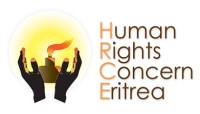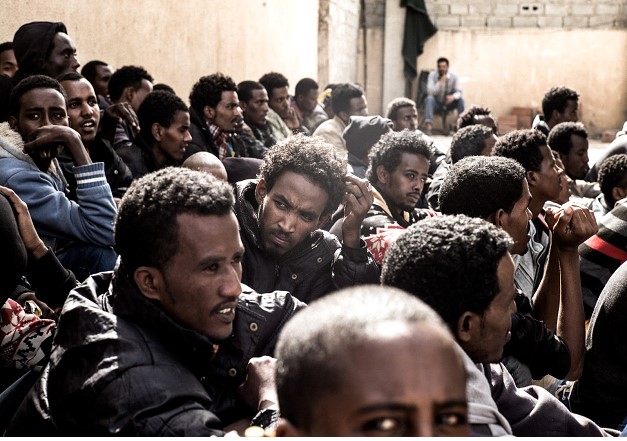ABANDONING HUMAN RIGHTS TO CURB MIGRATION

17 October 2017

During the last few months, Italy, backed by other European countries, has promoted a shift on migration policy by spearheading a tough approach aimed at blocking the flow of migrants coming from Libya. What is most worrisome about this approach, which is said to have the aim of curbing human trafficking, is the fact that Italy has struck deals with armed groups in a country with widespread conflict.
The movement of migrants and refugees from Africa to Europe has been a growing concern over the last twenty years for the European Union and its member states. Refugees are in need of protection because they are fleeing persecution, modern-day slavery, terrorism and conflict. Initially most of those forced out of their countries do not initially move to Europe: in 2016, just five African countries, among the world’s poorest nations, hosted more than the whole of Europe combined (2.5 million vs 2.3 million). When African refugees attempt to reach Europe, they use one of three routes: through Turkey into Greece and the Balkans, crossing the Mediterranean to Italy or Malta, and cross the Atlantic from West and North Africa to Spain and its territories.
In attempting to curb migration, the EU has been making deals with Turkey to shut down the flow of refugees and migrants through Turkey. Whilst there have been concerns about the way Europe is handling the migration route in the east, the situation in Libya is very different because Italy and the Libyan authorities have agreed to block the movement of refugees into Europe via the central Mediterranean route regardless of their protection needs. After the fall of Colonel Muammar Gaddafi’s regime, many Africans, and particularly darker-skinned Africans, found their situation to be more precarious as fighting led many Africans to be internally displaced and subject to abuse and arbitrary imprisonment. The people who own and run the “detention” camps, where thousands of Africans who have committed no crime now dwell, are involved in human trafficking and organised crime.
Refugees who have arrived in Europe have described how they have been raped, tortured and beaten (often to extreme sadistic levels) in the “detention” camps. In such camps refugees/migrants are ransomed, sold, pimped or otherwise abused. There are many women who reach Europe and now have to raise children born out of unwanted pregnancies due to being raped in Libyan detention centres. Underage boys and girls who reach Europe talk about a ‘kabo’, a person often of their same origins as themselves who acts as an intermediary between their enslavers and them. It is not unlike concentration camps in Europe during the Second World War, a war which displaced so many that the resultant refugee and human rights crisis prompted European governments to bring into being the Geneva Convention of 1951.
Everyone concerned appreciates that governments have the responsibility to protect their citizens, a rhetoric that is now used in Europe to push for regressive migration policies. Yet after World War II, Europe declared “never again” and promoted a universal approach towards protecting human rights. Thus, every government has responsibility under the Geneva Convention to respect human rights and offer asylum if we are to ensure that the atrocities that led to the Convention never happen again. The world should not stand by and watch as human beings – in this case Africans – are removed and taken to unnamed places and sent to destinations where their fate is in the hands of groups who do not subscribe to the belief that all human beings should be treated humanely.
In the current climate of conflict in Libya, migrants who arrive there from more distant countries like Eritrea almost invariably do so solely to continue their journey through the country, not because they see Libya as their final destination. It is not surprising to see why. Eritrean refugees who contact Human Rights Concern Eritrea have recounted their experiences and their suffering while Gaddafi was in power. Things have only deteriorated since. When Silvio Berlusconi’s government was trying to block refugees from entering Italy, it made deals with Gaddafi promising him support and finances in exchange for stopping refugees and migrants from leaving Libya. Both heads of state made appearances in which they spoke positively about the merits of the deals made but in negative terms about the human beings they wanted to keep in desert detention. Gaddafi’s comment that Africans ‘live in jungles and deserts’ did not go unnoticed by the press. In fact, the press, international humanitarian organisations and NGOs continue to criticise the deals made between Italy, the EU and Libya.
However, concerns about the safety and well-being of migrants and refugees are disregarded by Italian, Libyan and European officials. In Libya, African refugees are being enslaved, tortured and traded as commodities in the detention centres run by criminal organisations which present themselves to the world as patriotic militia. The militia which are more successful in this game patrol the seas wearing the uniforms of the coast guard. The Libyan authorities have been accused of working with militia, and there doesn’t seem to be a clear division between these vigilante groups and the administrations with whom Europe is cooperating. Nevertheless, Italy and the EU seem so keen on this new approach that they are willing to honour the old deals made with the Gaddafi regime: equipment promised to him is now being donated to the current Libyan authorities so that they will intercept and prevent refugees from crossing the Mediterranean.
These deals are clothed in the rhetoric of “helping refugees avoid their perilous journeys” by eliminating the root causes that force them to migrate in the first place. Such plans are therefore greater than just the financing of modern-day slave trade in Libya, because deals are also being made with the ‘source countries’ from which refugees flee. It is problematic, however, that funds from the European Union, approved during the Valletta Summit in 2015, are going to regimes like the Libya, Sudan and Eritrea.
For example, the European Emergency Trust Fund for Africa has pledged 40 million Euros to Kenya and Eritrea to train ‘investigators and judicial officers’. But what does this mean in a country like Eritrea? The pervasive espionage network and the special courts which operate there are the sharpest and most deadly weapons in the Eritrean government’s arsenal. What does it mean to aid a government which the EU recently condemned for its human rights abuses?
The deals between European countries and Libya, made on the back of the Khartoum process and the Valletta Accords are likely to harm rather than help refugees and migrants. Recently, Sudan has jailed and deported over 200 Eritrean refugees into Eritrea, where they will suffer cruel abuse and retribution. Sudan continues rounding up and deporting Eritreans to face torture and possible execution. Deals with Libyan coastguards may only equip militia to detain refugees more effectively and may empower armed Libyans to further engage in human trafficking as is being reported by refugees and others.
European countries and the EU should immediately stop funding the ongoing arbitrary and indefinite detention of helpless refugees, and should instead condemn rather than empower the root causes which force many people to leave their homes.
What is happening now is not a solution to the problem of migration; rather it makes it worse. EU policies will not stop the flow of migration because they do not address the conditions which create refugees in Africa. If Europe cooperates with governments which do not respect human rights or recognise the rule of law, then Europe is complicit in human rights violations. Making deals with tyrants cannot be acceptable and human rights should not be brought on the negotiating table.
Human Rights Concern – Eritrea (HRCE)
This email address is being protected from spambots. You need JavaScript enabled to view it.


![[AIM] Asmarino Independent Media](/images/logo/ailogo.png)